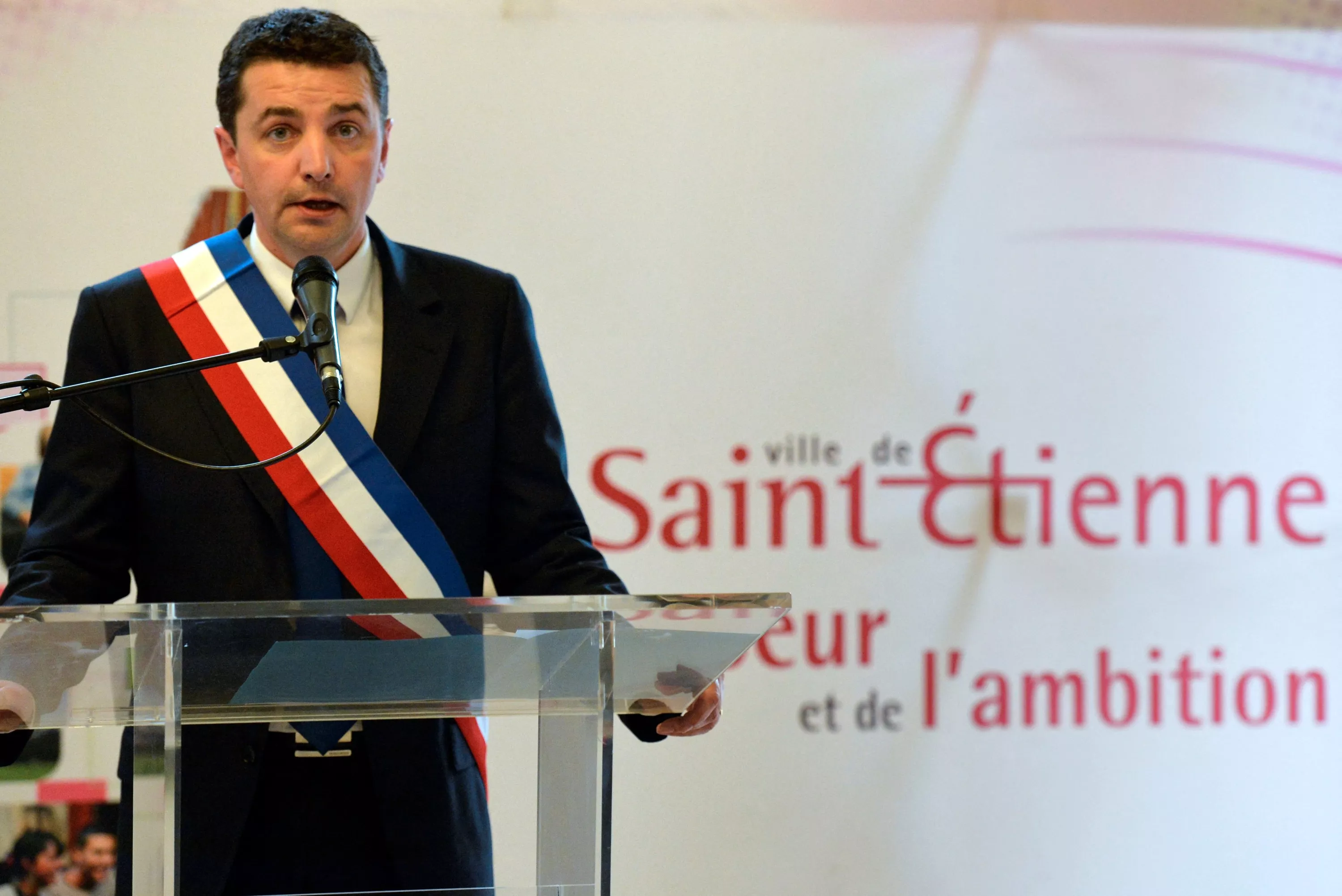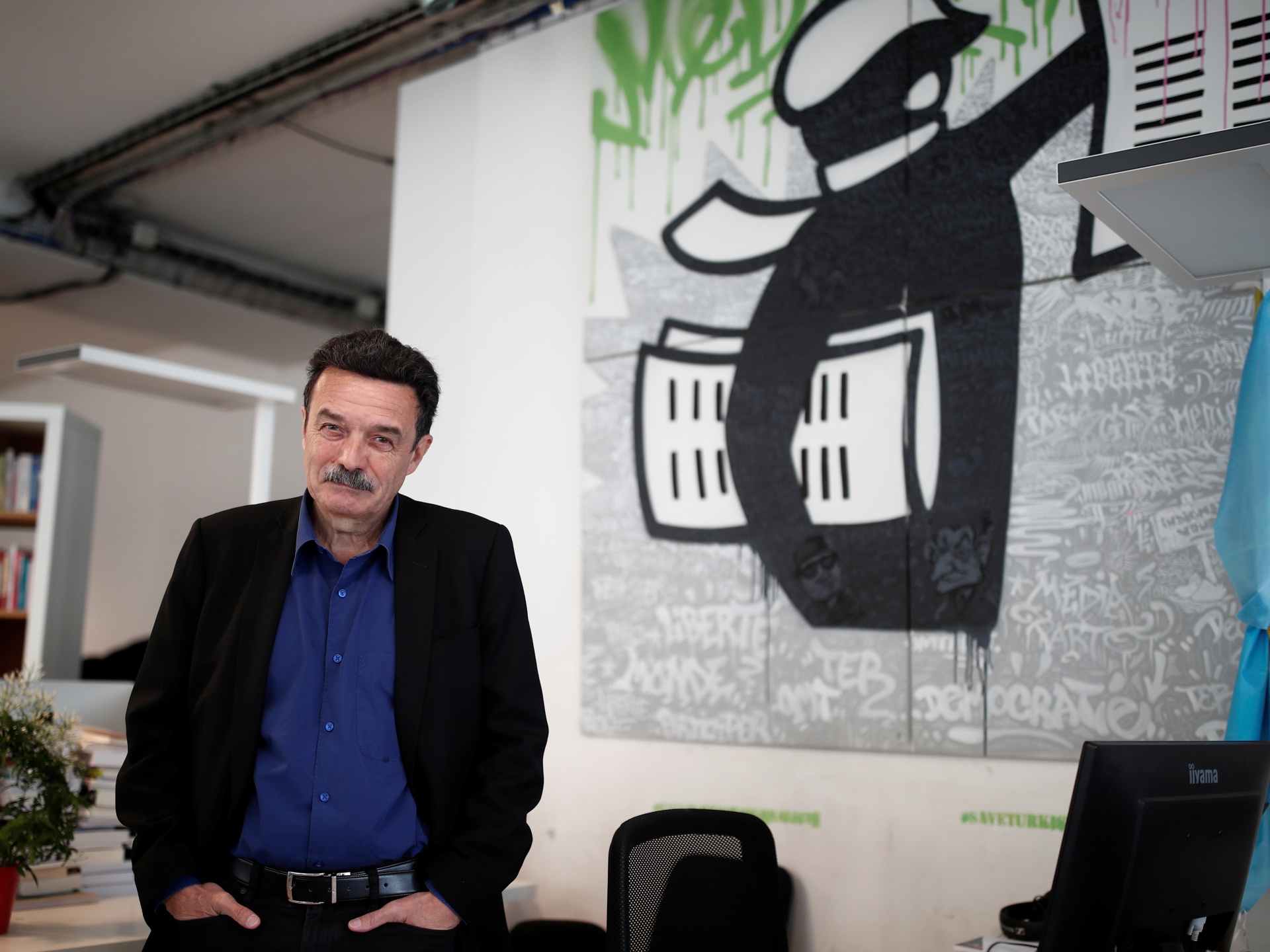Why Did France Censor the Publication of a Media Report Revealing a Political Scandal?

On November 18, the independent French website Mediapart received a judicial notice that the publication of a journalistic investigation prepared by its team was banned.
The media website is famous for its sensational investigations, which exposed many of the scandals and racism of the French political class.
The investigation under censorship also touched on a blackmail scandal involving a prominent Republican politician against other elected officials.
The site’s management said the censorship of its journalists “represents an attempt to muzzle their mouths and a flagrant violation of freedom of expression.” Other press organizations denounced the French court’s decision, declaring their solidarity with the Mediapart team.

Report Prohibition
In a report published on the incident, the site Mediapart said that it was not told of a lawsuit filed against it until it was surprised by the court’s decision to prevent the publication of leaks of audio clips that were part of an investigation.
The audio clips revealed that Republican Saint-Etienne Mayor Gael Perdriau blackmailed centrist politician Gilles Artigues using pornographic tape.
The court’s decision threatened that if Mediapart did not comply with the order, he would be fined 10,000 euros.
When the website published preliminary parts of it last August, the investigation caused an earthquake among French Republican Party politicians in the Saint-Etienne region, which led to Perdriau’s retirement and the dismissal of several of his aides.
The court in Lyon opened an investigation into the extortion case, during which the Republican mayor was prosecuted for crimes of “invasion of privacy and misuse of private information.”
French journalist Edwy Plenel, director of Mediapart, protested the court’s decision, calling it “unprecedented and contrary to the principle of freedom of the press, which is one of the fundamental freedoms guaranteed under the 1881 law.
He also expressed shock that “this decision was taken without a public hearing or discussion of the litigation. Instead, the plaintiff’s lawyer and the president of the court discussed its merits in complete confidentiality.”
Edwy Plenel, director of the French website Mediapart, revealed in an article that his site was subjected to “arbitrary censorship,” which he described as “unprecedented,” preventing the publication of an investigation related to the exploitation of a video of a sexual nature against a public figure.
He added that the investigations previously published by the website on the same file were not the subject of legal accountability but rather caused a political shock in France and in the city of Saint-Etienne in particular, as it caused the resignation of the assistant official in charge of the education file in the city, and the dismissal of the director of the office, while the mayor announced his withdrawal from his representative duties permanently without resigning.
The investigations published by Mediapart also led to the opening of a judicial investigation into charges against the figures involved in the file, related to “invasion of privacy, extortion, embezzlement of public property by a person in charge of a public office, breach of trust, and concealment of these crimes.” Legal investigations are ongoing.

Denunciation and protest
The incident drew condemnation from a number of press freedom organizations, including Reporters Without Borders, who published a protest petition in which they said: “We, journalists’ companies, associations defending the right to information, and journalists’ organizations, strongly condemn the decision of the Paris court to order Mediapart not to publish new information about the political practices of the mayor of Saint-Etienne, following those of sexual blackmail.”
The statement called the decision “a unilateral prior censorship” and a “serious and flagrant attack on press freedom.”
“How can such a decision, regardless of any disagreement, be taken by overlooking actions that would have allowed Mediapart to defend itself?” the signatories asked. This was before they expressed their solidarity with the site affected by this decision.
France’s Council of Ethics for Journalism and Mediation condemned the court’s decision, expressing concern over what it called “prior censorship that is incompatible with the public’s right to information and to ensure the availability of independent and quality journalism.”
In its statement, the Council also stressed that “journalistic work can only be subject to judicial or professional evaluation on the basis of dialogue between all parties.”
Le Monde attorney Christophe Bigot, who specializes in press law, told EURACTIV France that this judgment is “very severe” and contradicts both French press law and the European Convention on Human Rights (ECHR).
The court opted to suppress the report without providing Mediapart an opportunity to argue its case for publication in response to an urgent request from Perdriau’s attorney.
In addition, Article 10 of the ECHR on press freedom emphasizes the critical significance of the proportionality principle, which, according to Bigot, can only be evaluated in light of the information published.

France Press Censorship
This is not the first time that a court decision has banned a media platform from publishing. On October 6, the Commercial Court in Nanterre (Paris) banned Reflets.info from publishing “new information” about the Altice Group, owned by French-Israeli businessman Patrick Drahi, under the “trade secrecy” law.
The multiplicity of such cases points to the deterioration of the state of press freedom in France under President Emmanuel Macron, who during his first term sought to pass a law banning journalists from filming police violence against civilians during protests. A number of journalists have also been victims of such violence while covering the ground.
The State of the Press for France 2022 states: “While the [French] legal and regulatory framework costs press freedom and editorial independence, tools aimed at combating conflicts of interest are inadequate, inappropriate, and outdated.”
With the help of the directive against Strategic Lawsuits Against Public Participation and the Media Act, the European Union is working to control the situation in response.
RSF France Secretary General Christophe Deloire said, “It goes without saying that we must support the approval of an ambitious directive.
“The directive is only concerned with international SLAPP cases. But it needs to be supplemented by law that places national restrictions on these behaviors,” he continued.
Although the European Data Protection Supervisor (EDPS) this week highlighted the lack of ambition to shield journalists from spyware, a European Media Freedom Act is also being considered.
At a press conference on November 22, Mediapart stated that the court would review their request to have the court order withdrawn on Friday, November 25.








